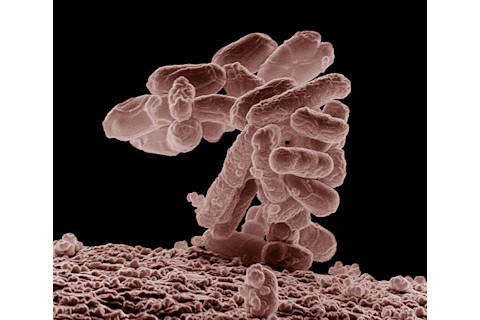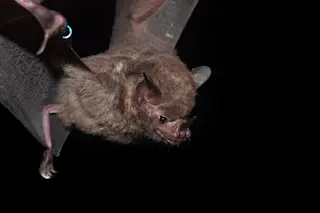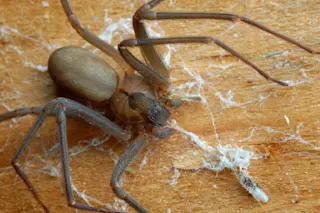
What’s the News: Going undercover can require some sacrifices--burning off your fingerprints, for instance, a la Gattaca. It's the same story with bacteria: they can slip below antibiotics' radar without any mutations, but only using an elaborate system of self-sabotage. A new study reveals the workings of this biochemical disguise. How the Heck:
When antibiotics are floating around, they activate a stress response in bacteria. Part of that response, the team found, is the actions of a toxin and its antidote.
When the bacterium isn’t stressed, the antidote keeps the toxin in check. But when stress hits, the antidote is destroyed, allowing the toxin to ravage the inner workings of the bacterial cell. It shreds the bacterium’s mRNA, the DNA transcripts needed to build new proteins, and the cell goes into lockdown.
Because it’s no longer showing signs of life, drugs pass over the dormant bacterium. When the antibiotic is gone, the bacterial stress response subsides, the toxin is reined back in, and the bacterium reawakens.
What’s the Context:
Toxin-antidote pairs have always been something of an enigma for biologists. Why, they wonder, would bacteria go around carrying the cellular equivalent of a loaded gun? This study provides one possible answer: the gun lets them fake their death when the going gets tough.
Antibiotic resistance is a serious problem (just a few weeks ago, a gene that confers resistance to 14 antibiotics was found in New Delhi's water supply), but mutations are the most well-known way for that to happen. Knowing that bacteria are using multiple strategies to dodge drugs suggests new possibilities for addressing it.
The Future Holds: The development of next-generation drugs that can flush dormant bacteria out. A two-drug combo of an antibiotic and a chemical that wakes bacteria up could be a potent solution, suggest the researchers. Reference: Xiaoxue Wang, Younghoon Kim, Seok Hoon Hong, Qun Ma, Breann L Brown, Mingming Pu, Aaron M Tarone, Michael J Benedik, Wolfgang Peti, Rebecca Page, Thomas K Wood. Antitoxin MqsA helps mediate the bacterial general stress response. Nature Chemical Biology, 2011; doi:10.1038/nchembio.560
Image credit: Wikimedia Commons













